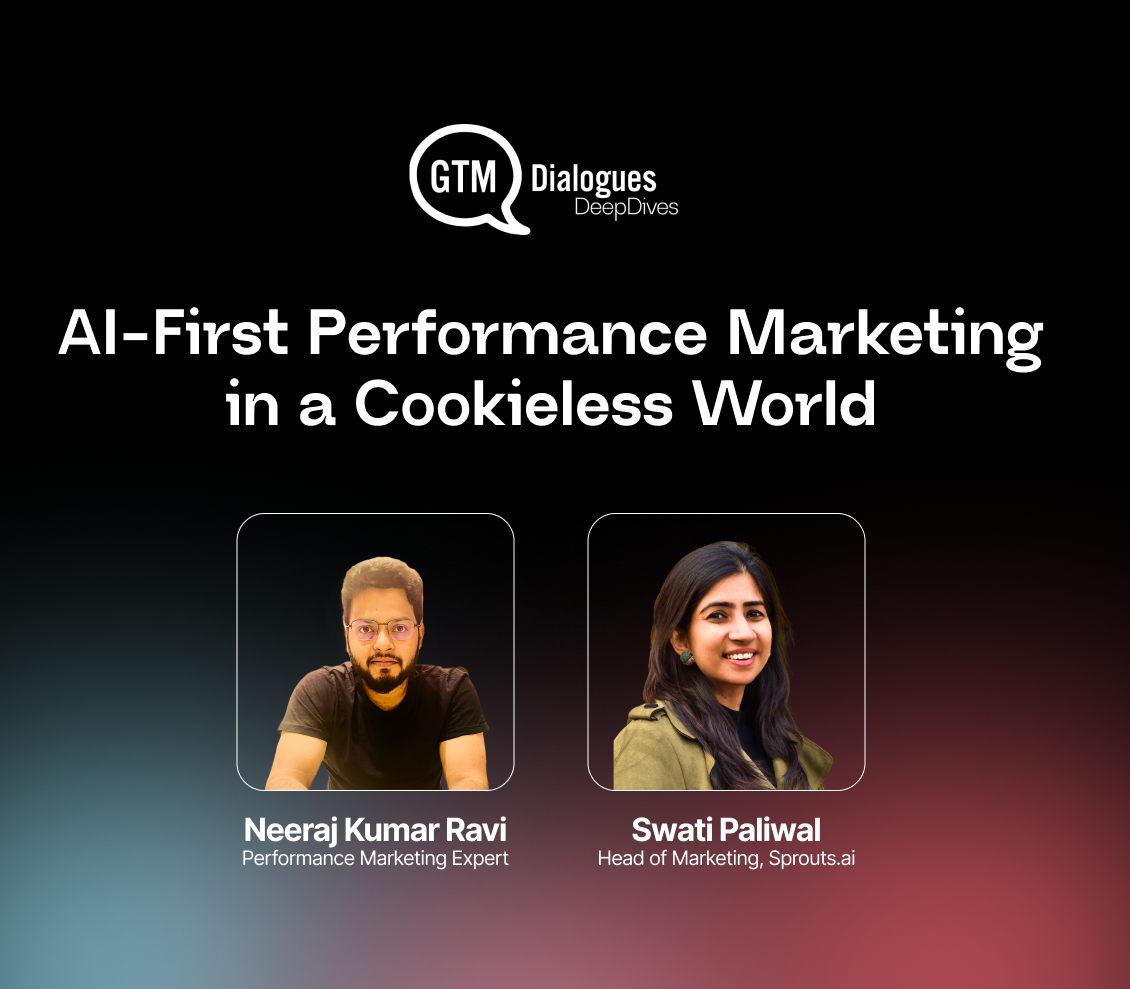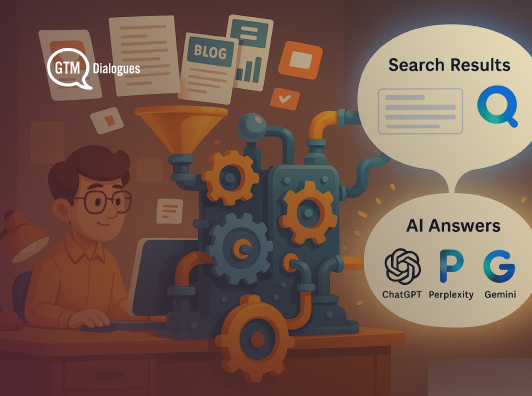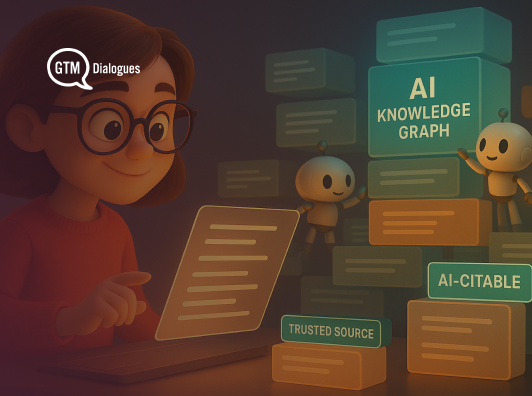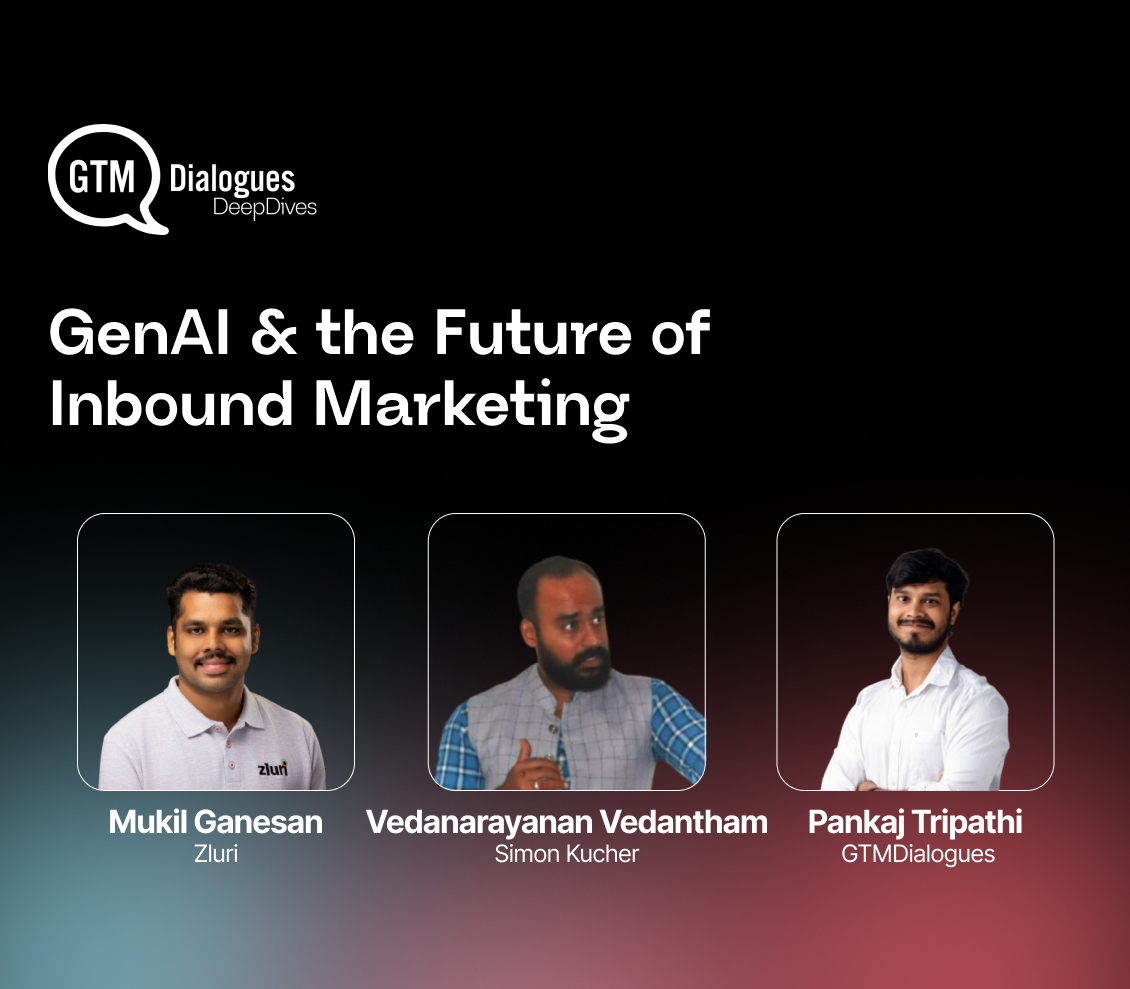expected to turn it into a LinkedIn carousel, an email sequence, a short-form video, and still publish consistently on your site.
But teams can’t just hire their way out of this problem. Budgets are tight, expectations are high, and the demand for content that’s both Google-visible and AI-citable keeps rising.
A CPA expert can solve this problem.
A Content Process Automation (CPA) Expert is the architect of your content engine, designing systems where automation handles repetitive tasks while humans focus on judgment, originality, and credibility. Their role is to ensure content scales efficiently without losing authenticity or authority.
In this article, we’ll break down:
- What a CPA Expert actually is.
- The qualifications and day-to-day responsibilities of this role.
- What companies should look for while hiring.
- The exact questions to ask in interviews.
- FAQs to clear the most common doubts about CPA expertise.
By the end, you’ll see why this role could be the missing piece in building a scalable, AI-ready content operation.
What is a Content Process Automation (CPA) Expert?
A Content Process Automation (CPA) Expert is someone who designs and runs the workflows that keep your content engine consistent, scalable, and aligned with business goals. Their focus isn’t just on producing more content but building a system where every stage of the process is optimized.
That system covers six stages: research, drafting, optimization, repurposing, distribution, and perception management. At each step, the CPA Expert decides which tasks can be automated and which need human oversight.
Think of them as the orchestrator of man + machine collaboration. AI handles speed and volume, while the CPA Expert ensures that human input shapes relevance, originality, and credibility.
Key Qualifications of a CPA Expert
The value of a CPA expert lies in combining technical fluency, editorial judgment, and systems thinking to build a scalable content engine. When assessing qualifications, here’s what truly matters:
i) Strategic mindset
A CPA Expert sees content as part of the company’s growth engine, not just a marketing activity. They connect workflows directly to GTM priorities, ensuring that every blog, email, or LinkedIn post feeds into lead generation and revenue.
ii) Technical fluency
They are comfortable with the entire modern stack that includes AI writing assistants for drafting, SEO platforms for optimization, analytics dashboards for measurement, and automation tools like Zapier or Make to tie it all together. Their strength lies in knowing where to automate and where to leave space for human oversight.
iii) Content judgment
Even the best AI draft can sound generic. A CPA Expert knows when to step in with founder POVs, customer insights, or market context so that the final piece builds credibility instead of eroding it. They ensure automation never strips away originality.
iv) Systems thinking
A CPA Expert can take one long-form article and turn it into a LinkedIn carousel, a short-form video, an email sequence, and community posts, all while preserving consistency in tone and message.
v) Leadership Abilities
Introducing automation into a content team often sparks resistance. The CPA Expert bridges this gap by showing how automation reduces repetitive work, not creativity. They create buy-in by making people feel enabled, not replaced.
Day-to-Day Responsibilities of a CPA Expert
The role of a CPA Expert goes beyond publishing content. Their responsibility is to design workflows where automation handles the repetitive tasks while human judgment ensures quality and authority.
On a typical day, their work may include:
i) Conducting research with AI tools to surface opportunities
They scan competitor ecosystems, track keyword trends, and identify topics worth covering, but always validate them against the company’s ICP and positioning.
ii) Drafting and refining content for different stages
AI-generated drafts save time, but the CPA Expert edits them to add clarity, originality, and brand alignment, ensuring the final version feels human and credible.
iii) Optimizing content for visibility and readability
They run assets through SEO and formatting tools, then decide where narrative flow, tone, or storytelling needs adjustment to keep it engaging.
iv) Repurposing content into multiple formats
One long-form article might become a LinkedIn carousel, an email sequence, or a short-form video script. Automation speeds this up, but oversight guarantees the brand voice stays intact.
v) Managing distribution across channels
They set up scheduled campaigns using automation tools but tweak high-value pieces for specific audiences to maximize impact.
vi) Monitoring perception and performance
They track backlinks, AI citations, engagement metrics, and brand mentions, then adjust workflows to improve both discoverability and authority.
Note: A CPA Expert isn’t just producing content. They’re ensuring every piece fuels visibility in Google, citations in AI tools, and credibility with the right audience.
What Should You Look For While Hiring a CPA Expert
Bringing in a CPA Expert is different from hiring a traditional content marketer. Instead of focusing only on writing skills or SEO knowledge, companies need to look for someone who can build and run a scalable system.
When evaluating candidates, here are the qualities that matter most:
i) Proven experience in designing content workflows
A strong candidate should show how they have created systems that streamline research, writing, optimization, and distribution, not just individual pieces of content.
ii) Comfort with automation and analytics tools.
Look for hands-on experience with AI writing platforms, SEO tools, workflow automation apps like Zapier or Make, and dashboards that track performance beyond vanity metrics.
iii) Editorial judgment and brand alignment.
The right hire should know when to override AI output, how to add founder perspectives or customer stories, and how to keep the brand voice consistent.
iv) Evidence of scaling content without adding headcount.
Ask for examples where they increased content volume and impact through automation, repurposing, and smarter processes instead of larger teams.
v) Strong communication and change management skills.
A CPA Expert will likely introduce new ways of working. They need to be able to train teams, secure buy-in, and ensure automation feels like an enabler, not a replacement.
Red flags include candidates who only talk about tools without discussing strategy, or who emphasize output volume while ignoring authority, discoverability, and conversions.
Questions to Ask in the Interview While Hiring a CPA Expert
Hiring a CPA Expert isn’t just about finding someone who can list AI tools on their resume. The interview should reveal whether they understand how to design workflows, balance automation with human oversight, and connect content operations to business outcomes.
Here are five questions you can ask, and how to evaluate the answers.
1. Strategic Orientation
Question: “Can you describe how you’ve built or scaled a content workflow before, and what business results it drove?”
- What you’re testing: Whether the candidate sees content as part of the GTM engine rather than just a publishing schedule.
- A strong answer sounds like: “I redesigned the blog workflow at my last company by introducing topic clusters, repurposing loops, and an editorial calendar linked to our ICP. Within three months, trial sign-ups from content doubled.”
- A weak answer sounds like: “I managed a content calendar and made sure we published regularly.”
2. Technical Skills
Question: “Which AI, SEO, and automation tools have you used, and how did they change your team’s efficiency or output quality?”
- What you’re testing: If they can move beyond naming tools to describing impact.
- A strong answer sounds like: “I has a set of prompt for drafting, workflow to get first-person POV from founders, Clearscope for optimization, and Zapier to automate content distribution into email sequences. This cut our turnaround time by 40% without lowering quality.”
- A weak answer sounds like: “I’ve used ChatGPT and HubSpot before.”
3. Content Judgment
Question: “Tell me about a time you rejected or heavily reworked AI-generated content. What was missing, and how did you fix it?”
- What you’re testing: If they know when automation crosses the line into generic or off-brand content.
- A strong answer sounds like: “The AI draft hit the keywords but lacked narrative depth. I added customer anecdotes and founder POV to make it trustworthy.”
- A weak answer sounds like: “I just fixed grammar and published it.”
4. Systems Mindset
Question: “If you had to turn one blog into a LinkedIn carousel, an email sequence, and a video script, how would you approach it?”
- What you’re testing: Whether they think in terms of content repurposing loops and cross-channel workflows.
- A strong answer sounds like: “I’d distill the blog into three key insights for LinkedIn, rewrite them into a short drip email series, and create a 60-second script that highlights one data point from the piece. I’d automate formatting but keep messaging review manual.”
- A weak answer sounds like: “I’d copy-paste sections into each channel.”
5. Change Management
Question: “How would you introduce automation to a marketing team that’s worried about being replaced by AI?”
- What you’re testing: If they can lead cultural adoption, not just technical setup.
- A strong answer sounds like: “I’d show the team how automation reduces repetitive work, freeing them up for creative projects. In my last role, this helped increase buy-in because writers saw automation as a support system, not a threat.”
- A weak answer sounds like: “I’d just explain that AI is the future and they should adapt.”
Add a take-home assignment to see them in action:
“Design a workflow where one blog becomes a LinkedIn campaign and an email sequence. Explain what you’d automate, what you’d keep manual, and why.”
This exercise separates candidates who can talk theory from those who can actually build systems.
Conclusion
Scaling content today isn’t just about producing more, it’s about creating a system that works at speed, across channels, and with enough authority to be cited by both Google and AI tools. That’s what a CPA Expert brings to the table.
They combine technical fluency with editorial judgment, design workflows that make automation practical, and ensure every piece of content contributes to growth. For companies, hiring this role means moving from scattered publishing efforts to a structured content engine that compounds over time.
If you’re building or scaling your content operations, start thinking beyond writers and marketers. The missing piece might be the person who designs the system itself - the CPA Expert.
Frequently Asked Questions
1. Is a CPA Expert the same as a content marketer?
No. A content marketer focuses on messaging, campaigns, and storytelling. A CPA Expert focuses on the system that powers those efforts. They build the workflows, automate repetitive steps, and ensure content is structured for both Google and AI discovery. In other words, the CPA Expert enables marketers to do more with less, without sacrificing quality or credibility.
2. Do small startups really need a CPA Expert?
Not always as a full-time role. Early-stage startups can manage with a marketer who understands automation basics. But once content demands spread across multiple channels (blogs, LinkedIn, email, video) a CPA Expert (even fractional) helps prevent bottlenecks. Their presence ensures the system scales as the company grows, rather than breaking under pressure.
3. What tools should a CPA Expert know?
The exact stack varies, but a baseline includes AI writing tools (ChatGPT, Jasper, Claude), SEO platforms (Clearscope, SurferSEO, SEMrush), automation apps (Zapier, Make), analytics dashboards (GA4, HubSpot), and scheduling tools (Buffer, Hootsuite). The difference is not in knowing the tools, it’s in knowing where to automate, where to review manually, and how to stitch the stack together into a workflow.
4. How do you measure a CPA Expert’s success?
Don’t measure by how many blogs or posts they produce. Instead, track outcomes: Are content-driven leads increasing? Are trial sign-ups improving? Is the brand being cited in AI answers? Is content being reused across formats efficiently? A successful CPA Expert reduces time-to-publish, increases discoverability, and ties content directly to pipeline growth.
5. Can AI replace the need for a CPA Expert?
No. AI can draft, optimize, and distribute, but it cannot decide which insights align with your ICP, or when a founder’s voice should shape the story. Without human oversight, automated content risks sounding generic and losing trust. A CPA Expert ensures automation becomes a force multiplier, not a replacement for judgment and originality.














